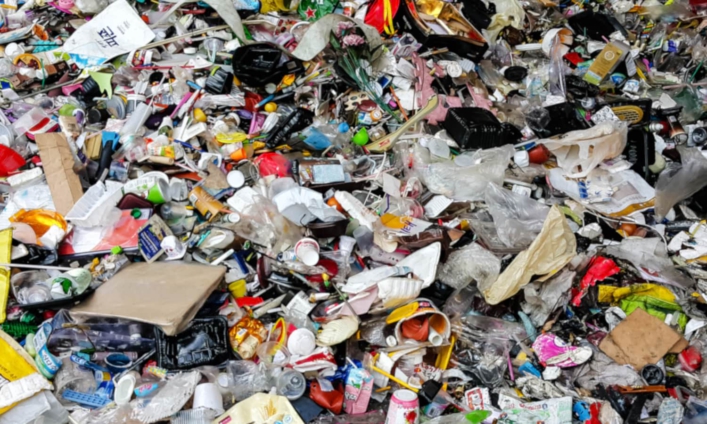Representatives from 174 countries are expected to convene in Ottawa in Canada, for the fourth session of the Intergovernmental Negotiating Committee (INC-4) on plastic pollution.
Scheduled from April 23 to 29, the meeting marks a significant step in the negotiation process, with only one more session expected to follow before finalizing negotiations later this year.
Executive Secretary of the INC, Jyoti Mathur-Filipp, emphasized that both humanity and the environment are experiencing significant challenges due to plastic pollution, highlighting the critical importance of the negotiating session.
“It is an opportunity to make significant progress for a robust agreement that would allow future generations to live in a world free of plastic pollution,” Jyoti said.
The negotiations come against the backdrop of what experts have labeled a growing plastic crisis. Since the 1950s, the world has generated 9.2 billion tonnes of plastic, with 7 billion tonnes ending up as waste, contributing to overflowing landfills and contaminating bodies of water, soil, and oceans.
Current data indicates that humanity now produces 430 million tonnes of plastic annually, with two-thirds of it comprising short-lived products that quickly turn into waste. Some of this plastic finds its way into the food chain, posing potential risks to human health.
During INC-4, the objective is to progress a preliminary version of the global agreement for finalization in Busan in the Republic of Korea, in December. The discussions thus far have centered on mitigating pollution throughout the entire lifespan of plastics, from their production to their disposal.
The negotiation process commenced officially in 2022 at the fifth session of the United Nations Environment Assembly, a significant milestone in global environmental governance.
Following two years of deliberation, the Intergovernmental Negotiating Committee reports transitioning from broad perspectives to a refined draft text.
This year's World Environment Day, marking its fiftieth anniversary, is dedicated to addressing the crisis of plastic pollution. Head of the United Nations Environment Programme's (UNEP's) Life Cycle Initiative, Llorenç Milà i Canals, emphasized that many people underestimate the significant impacts of a material deeply ingrained in their daily lives, affecting not only wildlife but also climate and human health.
“Many people aren’t aware that a material that is embedded in our daily life can have significant impacts not just on wildlife, but on the climate and on human health,” said Llorenç.
The production of plastic stands as one of the most energy-intensive manufacturing processes globally. Derived from fossil fuels like crude oil, plastics undergo transformation through heat and additives into polymers. In 2019 alone, plastics contributed 1.8 billion metric tonnes of greenhouse gas emissions, amounting to 3.4% of the global total.
Latest Stories
-
Polo Beach Club defies injunction on Dec. 22; noise concerns raised
40 minutes -
I wish new leaders strength to rule Ghana – Akufo-Addo
51 minutes -
Joseph Paintsil reflects on a stellar debut season with LA Galaxy
59 minutes -
I urge security to take firm stance against post-election violence – Akufo-Addo
1 hour -
Akufo-Addo delivers Christmas message in final yuletide address to Ghanaians
1 hour -
Onion costs shoot up as traders lament scarcity of commodity
2 hours -
Registration for MPs-elect to begin on December 25
2 hours -
EC calls for stakeholders’ support to complete electoral processes
2 hours -
Ghana Shippers Authority addresses Tema port delays, assures of efforts to resolve challenges
2 hours -
Ensign Global College recieves Presidential Charter
3 hours -
CODEO expands post-election observation to monitor parliamentary disputes
3 hours -
Ablekuma North, Dome Kwabenya will have MPs-elect before January 7 – EC
4 hours -
Bishop Salifu Amoako involved in accident at Tesano
4 hours -
Bills Micro-Credit climax year with durbar and dinner celebration
4 hours -
Lawyer sues Wesley Girls SHS for alleged religious discrimination
5 hours

